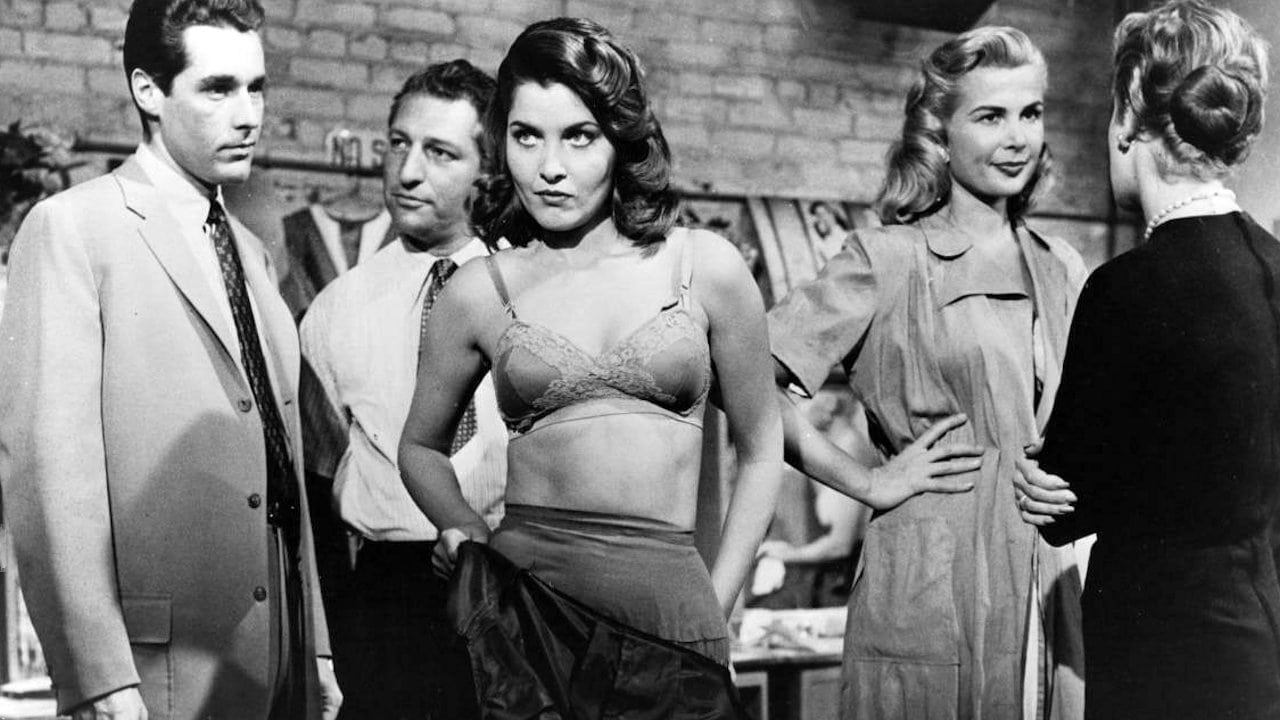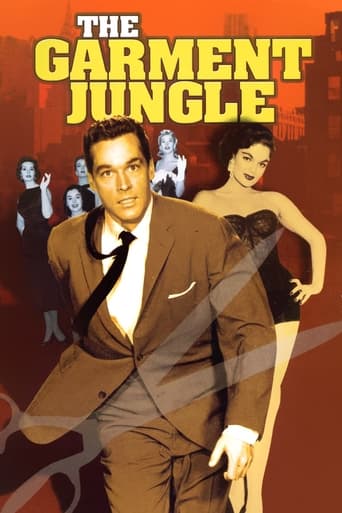

Good , But It Is Overrated By Some
... View MoreThe film creates a perfect balance between action and depth of basic needs, in the midst of an infertile atmosphere.
... View MoreI think this is a new genre that they're all sort of working their way through it and haven't got all the kinks worked out yet but it's a genre that works for me.
... View MoreThe movie turns out to be a little better than the average. Starting from a romantic formula often seen in the cinema, it ends in the most predictable (and somewhat bland) way.
... View MoreLike many of these 'expose' dramas, this one is overblown, pedantic, and makes it's point with a sledgehammer. Add to that the bland and boring (not to mention unattractive) Kerwin Matthews and you have a result that tries too hard to make it's point. Cobb is mercifully somewhat understated in what could have been another 'blowhard' role, and Boone is suitably sleazy (as are his henchmen). The only woman of any depth is actually the great Celia Lovsky (playing an Italian?) as Loggia's mother. In general a disappointing misfire. Perhaps it would have been better left in Aldrich's hands as Sherman was a 'Hollyweed product' at best.
... View More**SOILERS** With a steel-like grip on the New York City garment industry mobster Artie Ravidge, Richard Boone,has been running a protection racket taking in as much as $2,000.00 a month from clothes manufactures. That's to make sure that their business don't end up being burned by his hoods.The last thing that Ravidge wants is that the garment workers unionize thus putting him and his hoods out of business. It's when Ravidge has the president of Roxton Fashions Walter Mitchell's, Lee J. Cobb, partner and good friend Fred Kenner, (Robert Ellestein), who's in favor of unionizing the workers, killed in an elevator accident that Mitchell starts to have doubts about his relationship with him. Things get even more strained for Mitchell when his son Allan, Kerwin Mathews, shows up-after being away for some time in Europe-to help in running his garment business.Seeing what Ravidge has been doing in strong-arming the workers in preventing them from forming a union Allan decides to throw his lot in with firebrand union organizer Tulio Renata, Robert Loggia. It's when Tulio is later murdered by Ravidge's, with the help of a number of turncoats union members, thugs that even the wimpy Walter Mitchell decides that enough is enough in his having Ravidge, as a silent partner, run his garment business. But by then it's too late for Mitchell to turn evidence in his secret logs that he's been keeping, recoding all he shady deals he's had with Ravidge over the years, without him implicating himself!This is all ironed out by Ravidge himself in him having Mitchell murdered when he started shooting off his mouth in him unionizing his work force. This also had Allan together with the late Tulio's wife Theresa, Gia Scala, get their hands on Mitchel's logs and then try to get them into the hands of the city's District Attorneys office. That's if Ravidge who has everything to lose, including his freedom, allows them to do it!***SPOILERS*** Even though he was killed off early in the movie Tulio Renata was undoubtedly the one person who ended up putting the Ravidge mob behind bars. The fact that Tulio put his life on the line, and ended up losing it, gave the mostly intimidated workers the push that they needed to not only organize but throw Ravidge and his boys out of the garment industry. As for Allan he soon took up the torch that Tulio dropped and, by risking his life, got the goods-his father's secret logs-that not only exposed Ravidge's murderous protection racket but had him arrested indited and finally convicted for the many crimes that he committed.
... View MoreI'm in total agreement with the other reviewers here. This is a sharply-made film about a battle at a garment factory over unionization with terrific performances from Lee J. Cobb, a young Robert Loggia, and a menacing Richard Boone as a union buster. Kerwin Mathews gives only a passable lead performance, but then again his novice acting sort of fits his role as an outsider, which was necessary to give the audience a view of the garment industry from an outsider's perspective. Whether or not one scene or another was directed by Sherman or Aldrich makes little difference - the movie fits together fantastically, and has aged quite well. This movie would make a fine contrast to Paul Schrader's excellent 1978 expose movie "Blue Collar", which took an opposing negative view of the union.
... View MoreIn 1956, in broad daylight in midtown Manhattan, labor columnist Victor Riesel, who had written an expose of corruption in a Long Island union, was blinded by a bottle of acid flung into his face. This was the brutal New York battleground in which the aptly named The Garment Jungle took place the following year, a tough and absorbing drama about the fight to unionize the rag trade.Lee J. Cobb runs a women's-dresses firm; his ardently pro-labor partner, in the opening moments of the film, plummets to his death down a freight elevator shaft. It was no accident. Proud entrepreneur Cobb, though shaken, persists in his campaign to keep unions out of his shop by paying protection to a ruthless mobster (Richard Boone). Cobb's son (Kerwin Matthews) returns from a stay in Europe and, sympathizing with the piece-work jobbers, starts poking his nose into his father's business arrangements. He befriends a union organizer (Robert Loggia) who meets with a knife in an alley. Ultimately even Cobb comes to realize he's been dancing with the devil and tries to break off his alliance with Boone, who in turn unleashes his standard retaliation. But Matthews discovers the location of ledgers recording the history pay-offs....Vincent Sherman, a veteran of both Bette Davis and Joan Crawford, directed, with some measure of assistance from Robert Aldrich. But here no divas reign; both Gia Scala and Valerie French take subsidiary roles, if not small ones. Hard guys dominate the movie, as they did in On The Waterfront, another look at New York City's labor relations (while nowhere near as mythic as that epic, The Garment Jungle matches it in brutality and in an unapologetically leftist point of view).The movie boasts clarity and pace; there's even some nicely observed detail. Early scenes in the factory cleave into an upstairs/downstairs dichotomy: the jobbers sweat and toil for a pittance while the fashion models step into and out of elegant frocks (but, in malicious asides, the models grouse about being exploited as `escorts' for out-of-town buyers looking for a big night in the Big Apple). With the exception of the merely serviceable Matthews (whose young career stumbled after this movie and never regained its footing), the cast is notably fine. Cobb reins in his basso-profundo growl and curmudgeonly shtik, while Boone, Loggia (in his credited debut) and Joseph Wiseman (as a union stoolie) give restrained, convincing performances. Moments when the script threatens to go treacly are swiftly undercut by violence, and the movie never wavers from its plea on behalf of men and women risking their very lives to fight for a living wage. It's a stance that will strike many as hopelessly dated, in an era when Americans aspire to the status of stockholders; maybe that accounts for the obscurity of a bold and unsentimental film from late in the noir cycle that is brazen enough to make an overt political statement.
... View More